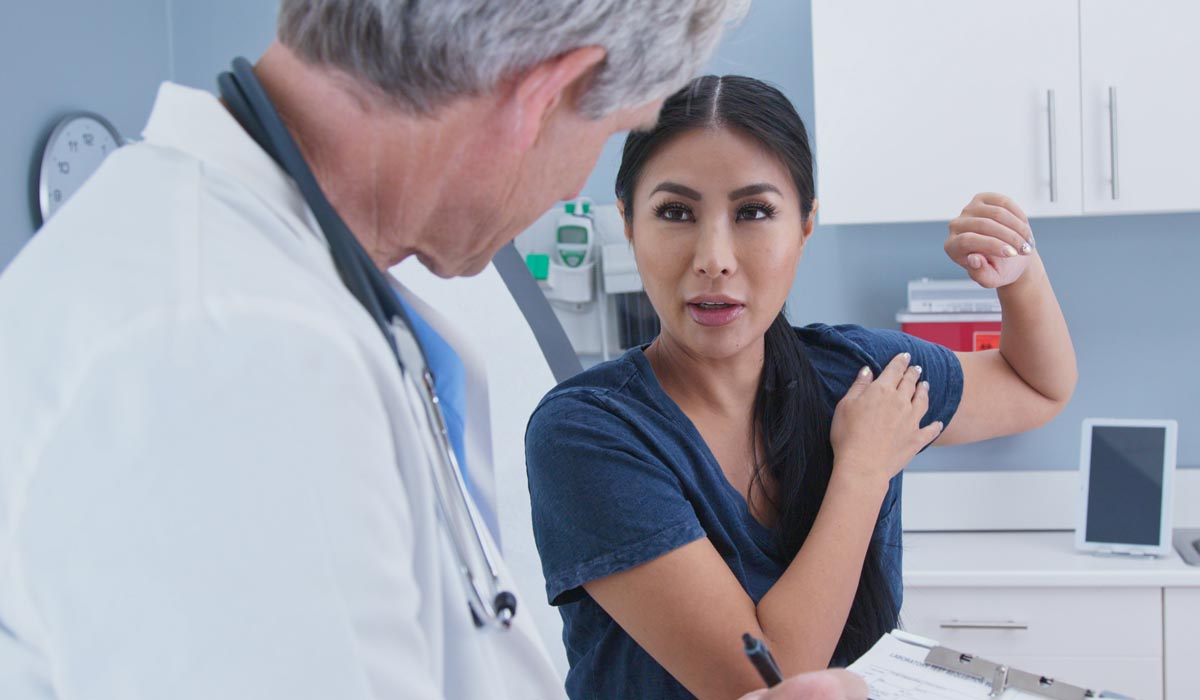✨Book online and enjoy a 5% discount on your first consultation
Home » Chiropractic Services » Rotator Cuff Injury

Rotator Cuff Injury
A rotator cuff tear is a rupture in the four muscles and tendons that stabilize your shoulder joint and support you to lift and rotate your arm. It is also called full-thickness tear or complete tear.
Rotator cuff tears can be easily categorized into two types. A partial tear occurs when the muscles are injured, while a complete rip occurs when the tendon is torn away from the bone.
Possible Causes
Rotator Cuff injury can be the outcome of progressive degeneration or wear and tear of the tendon tissue. It can also be the outcome of substantial injury to the shoulder. Other than that, repetitive overhead activity or heavy lifting for a long time can irritate or damage the tendon.
Risk Factors
Similar to Hamstring Tears, it is common for people to have these injuries if they play baseball or tennis. Injuries can also be the outcome of normal wear and tear, or they might happen if you lift a weight suddenly.
Signs and Symptoms
A torn rotator cuff cannot always be felt. But these are the most common symptoms:
You should at once see your doctor if you suffer from any of these symptoms.
Diagnosis
For diagnosis, our doctors will be dealing with the history of the injury and physical examination of the shoulder. During the assessment, they will check the range of motion and muscle strength. They will also find out more about the movement that makes your shoulders hurt.
The doctor may use one of the following methods.
Treatment Options at 7DMC
Our doctors will be using a host of combinations to treat you. They are:
Exercises must be performed regularly to minimize your risks of suffering a rotator cuff injury. Our specialists will suggest strengthening your muscles in the front or back area of your body. Above all, rotator cuff injury happens to millions across the globe, so there is no need for you to feel alone.
If you have chronic pain or recently injured your shoulder, you must immediately see an orthopedic surgeon. Your doctor may recommend some imaging and tests to understand the extent of the damage. Usually, MRI is suggested, as it picks up the minutest details.
Rehabilitation is essential after any surgery, and the same goes for sports injuries. Even though surgery repairs the defect, the muscles remain weak. For a complete recovery, rehabilitation is a must. The exercises can help in regaining the strength of the shoulder and improve its range of motion. Without rehabilitation after surgery, a patient may take several months.
Several rotator cuff tears can be treated non-surgically. Steroid injections, anti-inflammatory medication, and physical therapy all work very well and benefit in treating the symptoms. The aim of non-surgical treatment is to relieve pain and restore the strength of the shoulder.
However, if you are an active person or play sports, surgery is recommended.
Near Dubai Miracle Garden,
Diamond Business centre A,
1st Floor,
Arjan, AI Barsha,
Dubai.
WhatsApp us